Are Emojis Bad for SEO and How Does Google See Them?

In the circles I typically run in, most of the blog posts I read are relatively serious. There may be some flippant turns of phrase, some humorous anecdotes, or a bit of underlying anger, but it's all calmly expressed through language.
For others, including some of my clients, though, it's a different story. Lifestyle, pet, beauty, social, travel, and other blogs often have a much more casual approach to blogging.
See, from my end, I approach blogging as a serious, high-effort endeavor. Many of these other niches, though, live and die based on their social media. That's not bad, of course; it's just different, and I don't want to come across like I'm judging them for it.
What happens, though, is that many habits from social media trickle in. That includes things like shorter posts, much more casual language and style, and the use of emojis in text.
The question I've had for a while is: do those emojis matter? Obviously, they do for users who get a different vibe from the text they're reading. I don't mind if a casual pet ownership and lifestyle blog uses emojis; they're a person, and they convey their personality through them. On the other hand, if a vet blog aimed at professional medical care is lacing their posts with emojis, I might wonder about how seriously they take their craft.
At the same time, I'm not necessarily the target audience for the people who use emojis. They didn't exist the same way they do now when I was a kid, so I didn't grow up with them quite as normalized as they currently are. I can see and understand them intellectually, but it's not as nostalgic or emotionally resonant as it might be for the older Gen Z people most likely to be targeted by this kind of marketing.
Personal problem? Skill issue? Maybe. But I'm not alone in my generation, and I'm still pretty young; engineers at Google are also older on average, and they're also not likely to have that emotional resonance with emojis. So, is that reflected in the algorithm? How does Google see emojis, and how do they treat them?
Let's find out.
Do Emojis Render?
The first question you might have is whether or not emojis render at all. On a webpage, they do, of course, but what about in the meta title, meta description, or other data in a search result?
I can say with certainty that they do, in fact, render in the meta title. Any related search query about this – including just searching for the title of this blog post – will show you a handful of results with emojis in the titles.
The meta description is a little harder to verify. I always question the usefulness of the meta description field as it is, simply because when I looked into it in the past, the meta descriptions specified in a site's code were almost always ignored; only 17% of my tested queries used the data a site specified. The rest had some seemingly random data pulled from the page, often to the detriment of the search result. Google thinks they're being helpful by pulling contextual information from the page, but they almost always aren't really that beneficial with it.
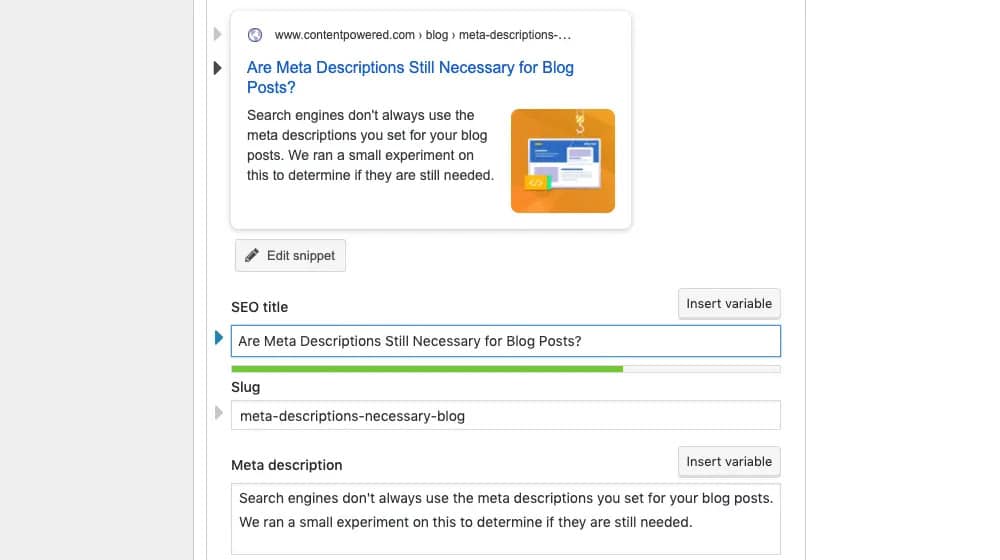
Fortunately, I did eventually find a result that shows unequivocally that emojis can appear in metadata. It's a lot rarer than in the meta title, though.
I also haven't found any examples of sitelinks or other Schema data using emojis. That doesn't mean it doesn't exist, though, just that I haven't stumbled across it.
So that brings us to the next question: does Google pay attention to them?
How Google Treats Emojis
It's clear that Google will render emojis in metadata, but that's a very different question than whether or not Google treats them in a specific way.
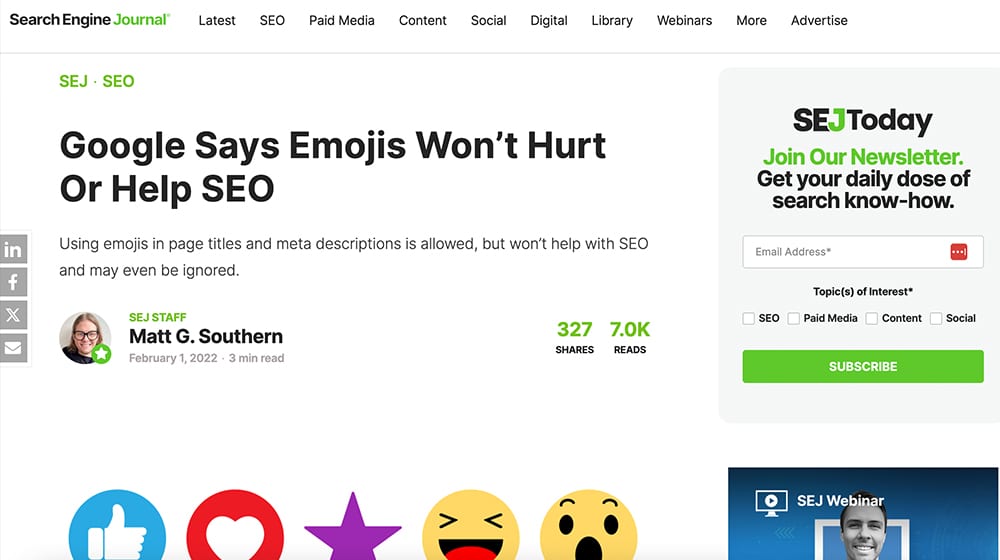
John Mueller's statement is neutral.
"You can definitely use emojis in titles and descriptions on your pages. We don't show all of these in the search results, especially if we think that it kind of disrupts the search results in terms of, it looks misleading perhaps, or those kinds of things.
But you can definitely keep them there; it's not that they cause any problems. I don't think you would have any significant advantage in putting those there because, at most, what we try to figure out is what the equivalent of that emoji is, and maybe we can use that word as well, kind of associated with the page."
Basically, they'll render emojis if those emojis aren't otherwise disruptive or getting in the way of a good result, like if you're just adding an emoji to the front of every meta title to make it stand out or if the use of the emoji is misleading about the actual content of the page. If their algorithm decides the emoji is disruptive, misleading, or harmful in some way, though, they'll either choose not to render it or will dynamically replace it with the word it represents.
John claims that Google doesn't treat emojis any differently than words when it comes to ranking a page, and that makes sense. A picture is worth a thousand words, but a hieroglyph isn't really a picture, and that's all emojis are when you get right down to it.
It's not substantially different from something like, say, Japanese Kanji.
This current treatment of emojis wasn't always how it worked, though. Back in the days of yore of 2013, emojis were allowed, but in 2015, Google disabled them for about a year and some change. They came back in 2017, and in 2020, Google talked more about how they look at the words and the meaning behind them rather than the picture itself.
Will they change again in 2024, 2025, or beyond? Who knows.
What About User Behavior?
Google may be ambivalent about the use of emojis in the search results or in the content of a page, but that doesn't mean users are. More importantly, user behavior is itself a search ranking factor; if a search result gets a higher click-through rate, it's likely going to rank higher because of it, so if adding emojis makes it more attractive and earns it more clicks, that could be a benefit.
Similarly, if the actual content of a page is laced with emojis, it might attract some users and repulse others, and that's hugely context-dependent. A dentist putting a tooth emoji in their blog or a pet blog using cat and dog emojis isn't unusual.
A crypto blog not using the rocket and moon emojis is inconceivable. On the other hand, a corporate venture capital firm using the cash money emojis might come off as unprofessional and lose them confidence.
A couple of years ago, Semrush performed a few tests. They did one major test with Walmart, simply adding a smiley face emoji to the start of metadata to see if having something was more attractive than not having anything at all. Their conclusion was that it didn't make a difference. But, critically, this was not a contextually relevant emoji. This was just a plain old 😀 face preceding the text with no further utility or context for the page it was on.
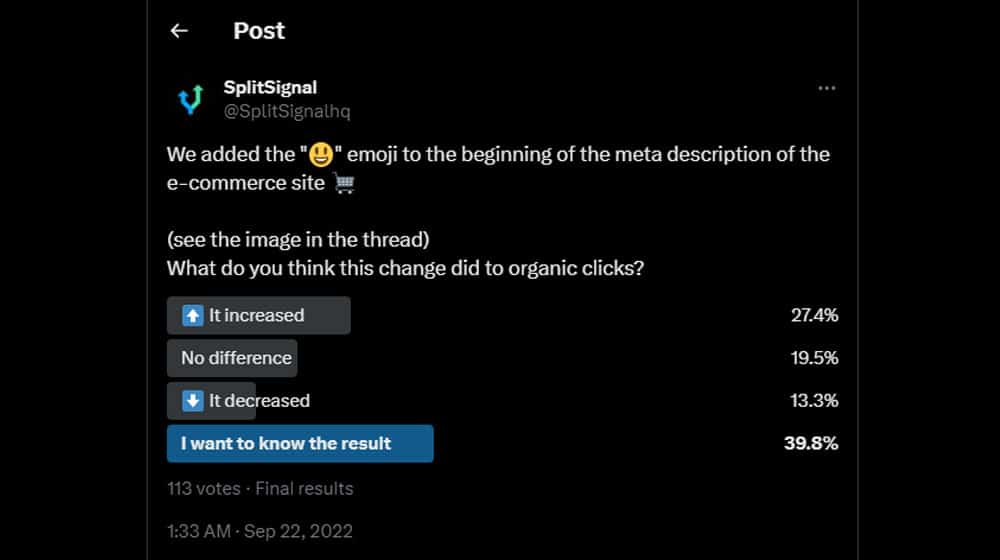
On the other hand, they had more contextual examples.
- A recipe blog adding a drink emoji to pages relating to drinks saw an 11% increase in clicks.
- A DJ equipment vendor adding music note characters to the description (♫) showed a 3% increase.
Why the difference? One was in the title, and one was in the description, which could be relevant. More importantly, though, the ♫ symbol is a Unicode symbol, while an emoji actually looks like "😀" under the hood. Google doesn't necessarily replace special characters and Unicode symbols because those are also used for various non-English languages; emojis aren't, so they can do a word replacement.
You can even see this difference in action. For example:
- Searching for "♫ supplies" (with the intended meaning of "music supplies") shows you the occasional music-focused result because that result also uses ♫ in it, but it mostly has generic results for supplies, including first aid supplies and school supplies.
- Searching for "🍕near me" (with the intended meaning of "pizza near me") does, in fact, show you local map results for pizza places and local directories of pizza restaurants.
They're different kinds of symbols and are treated differently. Fortunately, this isn't really likely to make a difference. Most people don't type Unicode characters in their search queries, but everyone has an emoji keyboard on their phones and can search using them easily.
A Note on Accessibility
One thing it's easy to forget sometimes is that able-bodied individuals are not the only users of the internet. In particular, there are a lot of ways the web can be made more accessible, such as to vision-impaired users with the use of screen readers. Emojis can potentially present a problem to screen readers, though.
Now, most screen readers these days know well enough to translate "🍕" as "pizza" or as "pizza emoji" when reading it. But what about a more exotic emoji or one that relies on positional context or some other visual impact that the textual translation lacks? More emojis are being made every year, and while most of them have "alt text" (which you can see on this page), it's possible that some don't or that the alt text doesn't actually reflect the way you intended to use the emoji or its common usage.

All of this is a pretty interesting discussion, and it's something that evolves periodically over time, so it can be worth paying some attention to, especially if you expect any significant usage of your site from people using screen readers or other assistive devices.
The Takeaway
To wrap things up, here are the key points we know and suspect.
Emojis are not a direct ranking factor. Using them isn't going to earn you an algorithmic penalty, and that includes whether you use them in your blog content, your navigation, your meta descriptions, or your meta titles.
You won't be penalized for using emojis. In general, that is. Emojis are treated like the words they represent, though, so if you're using a ton of emojis as a way to "keyword" spam or be disruptive in some way, Google will ignore them, and in extremely egregious cases, they might penalize you, though that's not necessarily super likely.
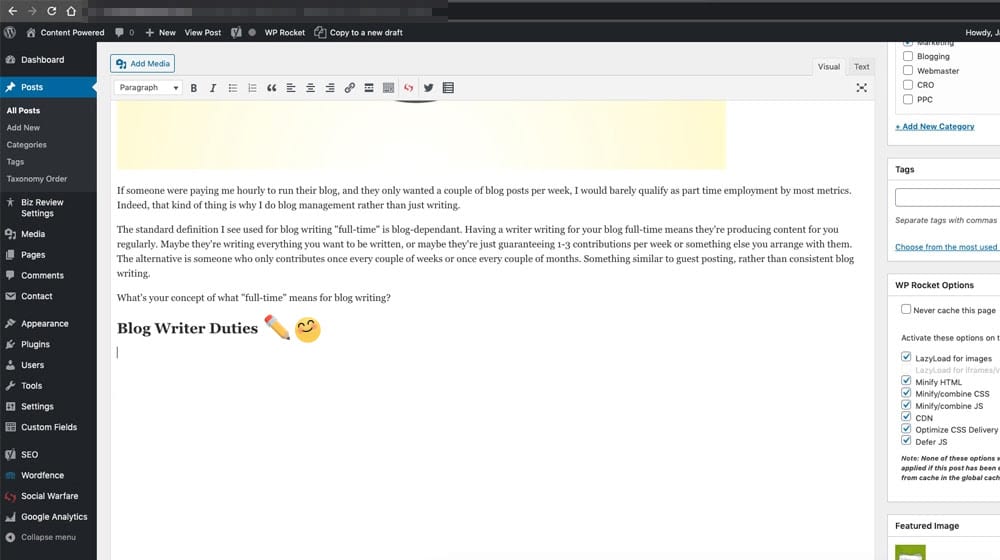
Emojis used in search queries are generally treated as if they are words. Using or not using emojis doesn't make a difference to whether or not you show up for a query for "pizza" or one for "🍕" so you can feel free to use whichever suits your aesthetic the best.
Certain users may prefer results with emojis in them. People who are looking for a result that is casual and fun – and ideally from a younger content producer – are going to be more interested in emoji-laden results simply because that's the kind of culture they have. People who generally don't use or care for emojis aren't necessarily going to prefer – but also might not avoid – results with emojis in them.
Emojis aren't as stand-out as they used to be. A decade ago, Google's search results were a lot less… let's say "visually cluttered" than they are now. These days, search results have the site's favicon, video thumbnails, image results, site logos off to the side sometimes, all that sidebar and knowledge box content, and more all over the page. You used to be able to stand out with emojis because they were the one non-text element on the page; today, that's very much not the case.
Should You Use Emojis?
So, in general, whether or not you use emojis depends on two things.
The first is your brand aesthetic. Some brands are casual, fast, loose, and young, and those are much more likely to have audiences who are attracted to emojis and their use. Others are focused on older, stodgier, or more corporate-style audiences, and those are less likely to be attracted by emojis. They may not necessarily be repulsed by them – emojis are saturated in our culture at this point – but it'll likely be more neutral.
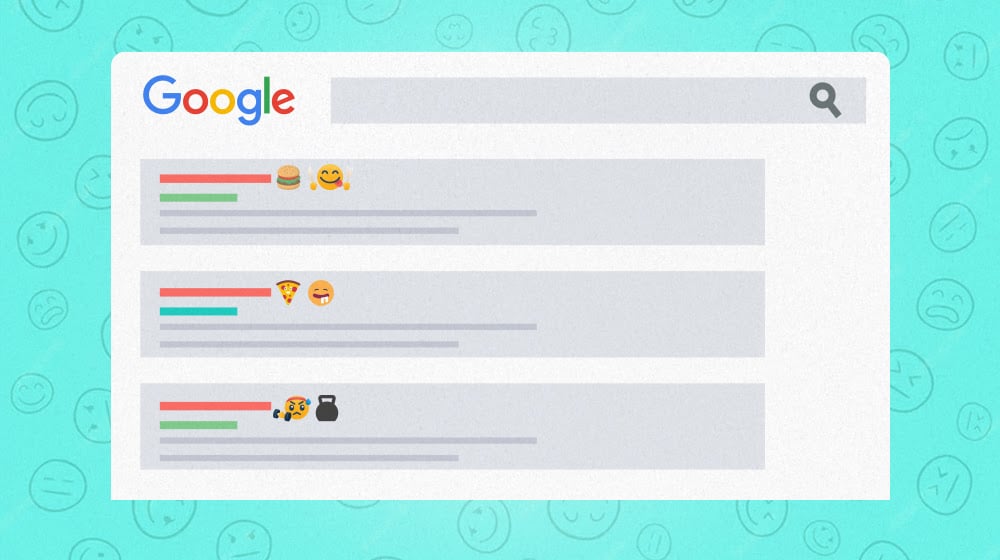
The second is context. Since emojis are broadly treated like the words they represent, unrelated emojis can be ignored, while related emojis can be relevant. Just like anything else you include in a blog, relevance to the topic is critical.
So, do you use emojis? If so, do they help? Have you tested them? I'm curious to hear your thoughts!










Comments